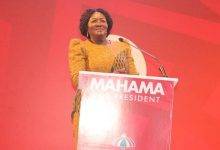On Tuesday, the Institute of Statistical Social and Economic Research (ISSER) of the University of Ghana organised a forum to review the 2023 mid-year budget recently read in Parliament by the Minister of Finance, Mr Ken Ofori Atta.
At the event, the institute’s director, Professor Peter Quartey, urged the government to evaluate its tax reforms and scrap or restructure those that are not performing.
He cited the Electronic Transaction Levy (E-Levy) as one of the taxes to be restructured as it had not met its revenue targets.
He went further to give the impression that the 0.75 per cent E-Levy charge is high and so it is making people avoid its payment where possible.
Therefore, that rate should be reduced to 0.5 per cent to rake in more revenue, which is to say that the reduction can encourage the people to pay the tax.
We support the professor’s suggestion because we have not forgotten the hullabaloo that characterised the introduction of that tax, the Minister of Finance, Ken Ofori-Atta, said it would widen the tax net and rake in about $1.15billion at the rate of 1.75 per cent.
According to the government, Ghana’s tax-to-GDP ratio was barely 13 per cent, which was well below the global15 per cent threshold, used as a key indicator of economic growth and the consequent poverty reduction.
Thus, the E-Levy was expected to increase the country’s tax revenue to GDP from 13 per cent to 16 per cent.
Later, the Deputy Minister of Finance, Dr John Kumah, said E-Levy revenue, among other things, would provide jobs to about 11 million people.
In spite of the good reasons given, some Ghanaians rose against the levy, claiming it would not serve the interest of the common people and that it could jeopardise the government’s digitalisation efforts and plans to introduce the digital currency.
For instance, Mr Haruna Iddrisu, the then Leader of the Minority in Parliament said the Minority would not support the E-Levy because it sought to take away the money of a bigger proportion of Ghanaians in multiple phases.
In other words, they gave the impression that the tax would be regressive to the hurt of the vulnerable masses.
Due to the disagreements, the original Electronic Transfer Levy Act, 2022 (Act 1075) was amended as Electronic Transfer Levy (Amendment) Act, 2022 (Act 1089), which reduced the rate from 1.5 per cent to 1 per cent.
Currently the E-Levy rate is 0.75 and Prof. Quartey is proposing a further reduction to 0.50 per cent.
The motive behind his suggestion is to encourage more members of the public to accept to pay the levy for the state to rake in more revenue.
We see the professor’s suggestion as saying that the country has not gained the full benefits of the levy and so something must be done.
We totally support but we do not agree with his suggestion on the cash-out system as its scrapping would result in Mr Haruna Iddrisu’s fear of the E-Levy taking away the money of a bigger proportion of Ghanaians in multiple phases.
What we agree to is that the government should further widen the tax net by enforcing the payment of taxes whose payments appear to be ignored by the government such as the property rate.
District assemblies have data on properties in their jurisdictions yet they do not collect that tax as expected.




